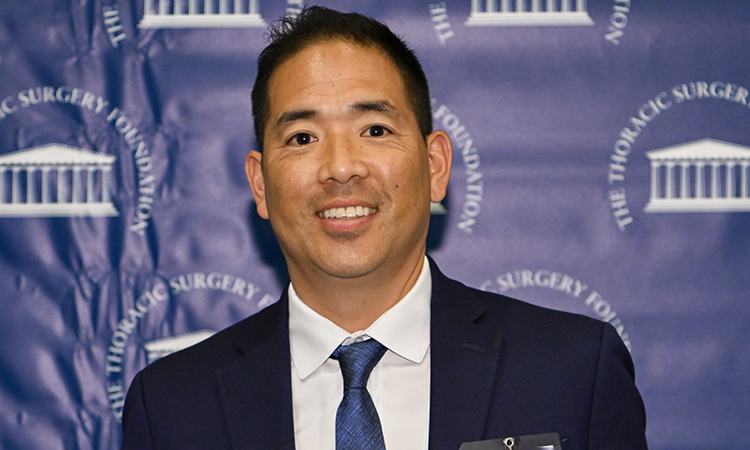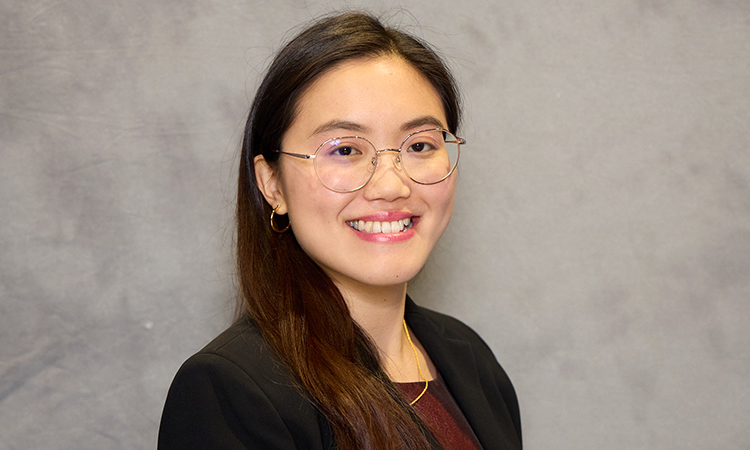Kaiser Permanente Bernard J. Tyson School of Medicine faculty member Jeffrey Velotta, MD, has been named a 2023 Thoracic Surgery Award recipient by the Thoracic Surgery Foundation. Specifically, Velotta received the AstraZeneca Reversing Health Disparities in Lung Cancer Research Award to further his research into the social determinants that lead Asian Americans to suffer a disproportionate number of lung cancer diagnoses and deaths, and to look for ways to reverse the trend.
In the following short interview, Dr. Velotta shares details about his research and his path to a career in medicine.
What are the details of the research grant?
I am excited about this grant. It is awarded by the Society of Thoracic Surgeons (STS) research branch, called the Thoracic Surgery Foundation (TSF). It is a two-year award to begin this summer, and it is the first time, to my knowledge, ever that the STS awarded a grant studying lung cancer in Asian Americans.
The title of this study is, “Identifying Novel Patient Outreach Strategies to Increase Lung Cancer Screening (LCS) in Asian Americans in an Integrated Healthcare System.” The purpose of this study is to improve lung cancer screening uptake, specifically in high risk Asian American individuals. Our experience was showing that Asians were doing the worst in terms of getting a lung cancer screening CT scan, and the question is, “why is this?” Thus I wanted to do something different which was to have active outreach by a lay navigator on my team that will actively enroll, educate, and order all LCS tests and follow up for them in any language also via interpreters. Currently there is no outreach for our patients and so most do not know that they actually do qualify to get LCS services for free and covered by insurance. Thus the goal is to test whether a lay navigator can increase LCS uptake and assess what worked and didn’t work with surveys afterwards.
Why is it important to increase research on lung cancer in the Asian American community?
It is so important because cancer is the number one cause of death in the US for Asian Americans, whereas in every other population it is heart disease. Thus it is a major underfunded, underutilized health crisis for Asian Americans. Why are they dying more than any other race? We need to catch the cancer earlier through screening and patient education with smoking cessation. We need to have appropriate social services in all Asian languages, and reduce the stigma of cancer in Asian cultures. Then we have a whole other crisis with the increasing rise of lung cancer in non-smoking Asian females, and this needs to be addressed and studied as to the cause and what we can do for treatment for these patients.
What made you want to become a doctor?
I didn’t always want to become a doctor, in fact, that was the furthest thing from my mind. I grew up in a liberal, non-classical Asian American family, as I am fourth generation Japanese American, and so we were more well rounded per se. I wanted to be a baseball player and/or school teacher combined, like my high school coaches. It wasn’t until midway through undergrad that my focus switched, as my father started to face more cardiac illnesses that he had to deal with and both of my grandparents passing away, one died of lung cancer and had heart issues as well, that I really started to focus more on medicine and helping via cardiothoracic surgery. So I actually went into medical school with a focus, and that focus was cardiothoracic surgery even in my first year in medical school.
Thus, from then on it was ingrained in me to be a cardiothoracic surgeon. And then I thought back and realized my dad had been operated on by a famous cardiothoracic surgeon when my dad was only 13 years old; it’s a lot to go through that early on in life, because there are complications you have to deal with for the rest of your life from big surgeries like that so early on. So it was always kind of a part of me … then when people got sick, it “triggered” me to want to learn more about medicine and help people with my hands.
What was the catalyst to you pursuing your career in medicine?
I had really good mentors in undergrad and my year off before I applied to medical school, called a gap year, in which I did research for cardiac physiology at USC Keck School of Medicine, and Alicia McDonough, PHD was my PI, and she really built confidence in me and gave me tons of responsibility for a 22-year-old kid out of undergrad, thus she really made me feel that I could go to medical school and be able to make a difference. The other thing was my family’s history of either cardiac disease or lung cancer, which also paved my way.



